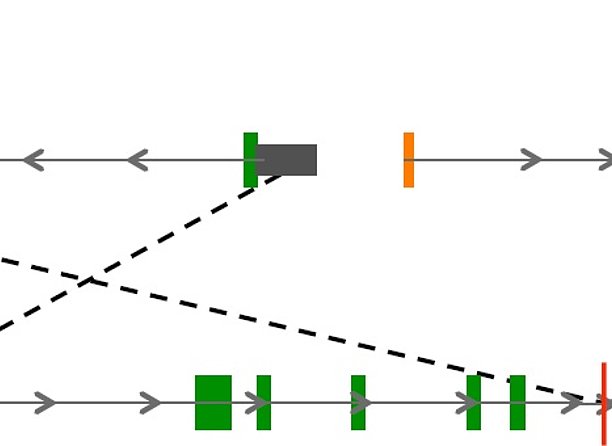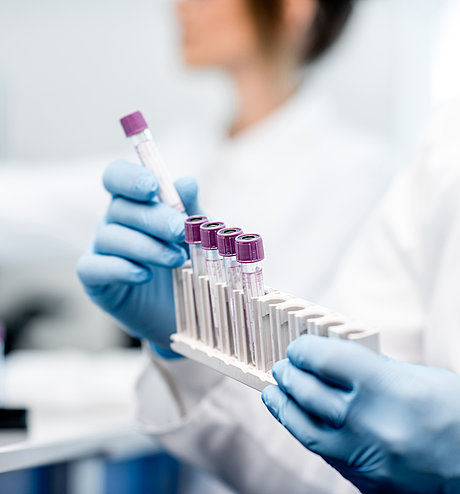Druggable oncogenic fusions - NRG1 Gene Fusions as Markers & Targets for Various Cancers
Ref.-Nr. 3769
Keywords: Cancer, lung cancer, adenocarcinoma, target, marker, fusion, NRG1, ERBB2, ERBB3a, SCLC, KRAS, EGFR, kinases, kinase inhibitors, invasive mucinous, drug, therapeutic, stratification
Cancer patients frequently bear therapeutically relevant genome alteration. For instance, lung adenocarcinomas of patients that have never smoked carry genome alterations affecting kinases, such as EGFR mutations and translocations affecting ALK, ROS1 and RET genes. These patients can be effectively treated with an ever-growing number of kinase inhibitors. However, despite substantive cancer genome sequencing efforts a majority of tumors still lacks therapeutically tractable alterations. Scientists of the University of Cologne identified NRG1 gene fusions as ideal diagnostic and prognostic markers and targets for various tumours. The MTSS1-NRG1 fusion event has e.g. been detected in patients with small cell lung cancer and the gene fusion CD74-NRG1 has been shown to occur frequently in never smokers with invasive mucinous lung adenocarcinoma lacking KRAS mutation. The latter has been verified by several other groups. CD74-NRG1 was found to signal through induction of ERBB2-ERBB3 heterodimers. In light of the multitude of available drugs or drugs in clinical trials targeting ERBB2, ERBB3 and their downstream pathways, the detection of CD74-NRG1 fusions may aid making a decision on the appropriate medical treatment e.g. for invasive mucinous lung adenocarcinomas. Furthermore, the fusion itself represents a promising target for the development of medical interventions. Thus, these findings position MTSS1-NRG1 and CD74-NRG1 as druggable oncogenic fusions.
Vorteile
- CD74-NRG1 is a novel fusion gene which - by itself or its products – can be used both for diagnosis and as a target for medical intervention e.g. in invasive mucinous adenocarcinomas
- MTSS1-NRG1 as another druggable oncogenic NRG1 fusion gene
- Known Signalling Pathways
- Enables stratification of patients for ERBB2 and/or ERBB3 inhibitor treatment
Kommerzielle Anwendung
On behalf of the University of Cologne, PROvendis offers access to rights for commercial use as well as the opportunity for further co-development.
Aktueller Stand
In case of interest, we are pleased to inform you about the current status of the patent.
Relevante Veröffentlichungen
Fernandez-Cuesta, L. et al. (2014) CD74-NRG1 fusions in lung adenocarcinoma. Cancer Discov 4(4):415-22.
Nakaoku, T. et al. (2014) Druggable oncogene fusions in invasive mucinous lung adenocarcinoma. Clin Cancer Res 20(12):3087-93.
Duruisseaux M. and Wislez M (2014) CD74-NRG1: a new fusion gene in lung adenocarcinomas characterizing mucinous adenocarcinomas. Bull Cancer 2014 Jun; 101(6):529-30.
Gow, Ch. et al. (2014) Multidriver mutation analysis in pulmonary mucinous adenocarcinoma in Taiwan: identification of a rare CD74-NRG1 translocation case. Med Oncol. 2014 Jul; 31(7):34.
—
Eine Erfindung der Uni Köln.



